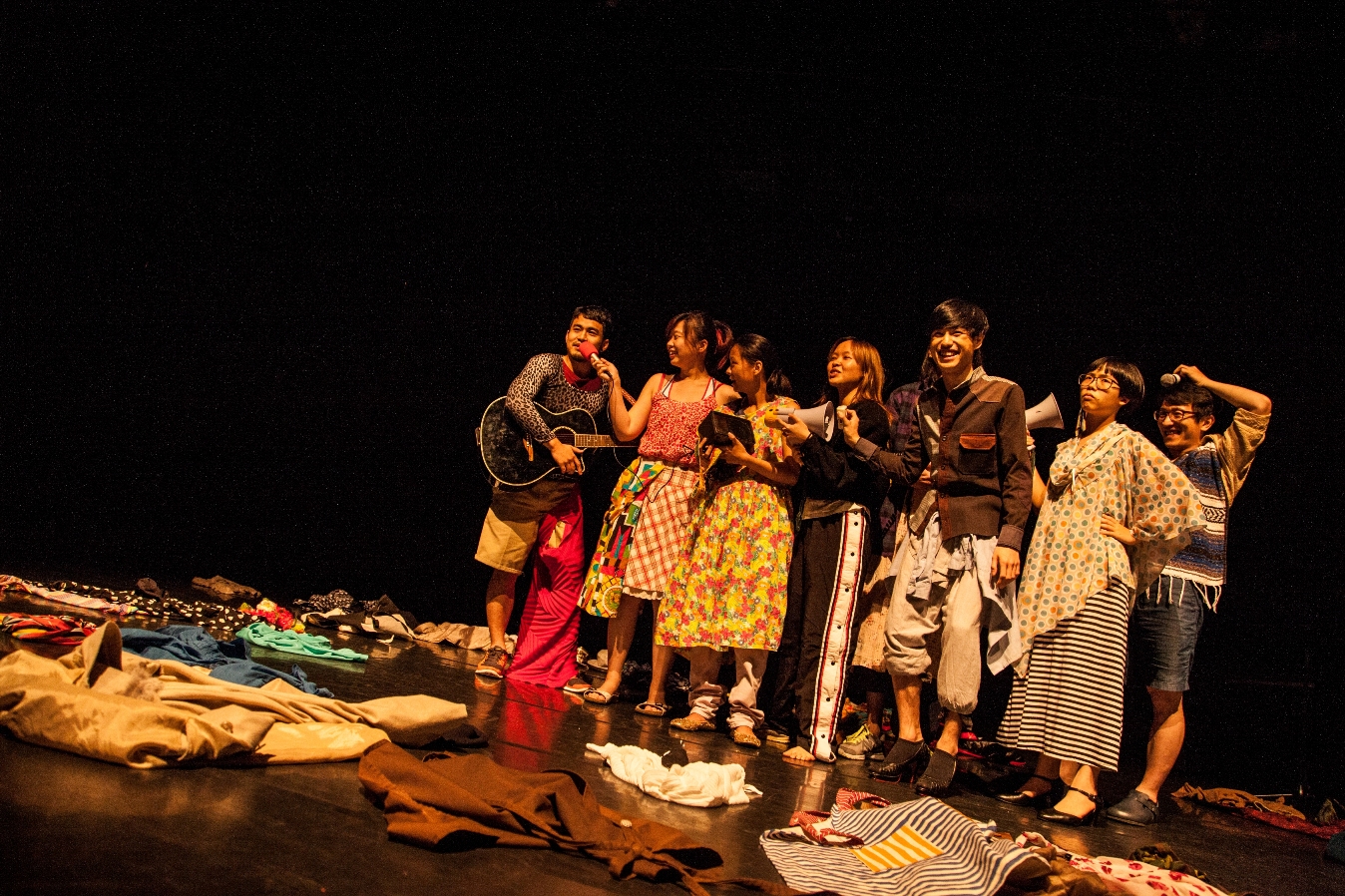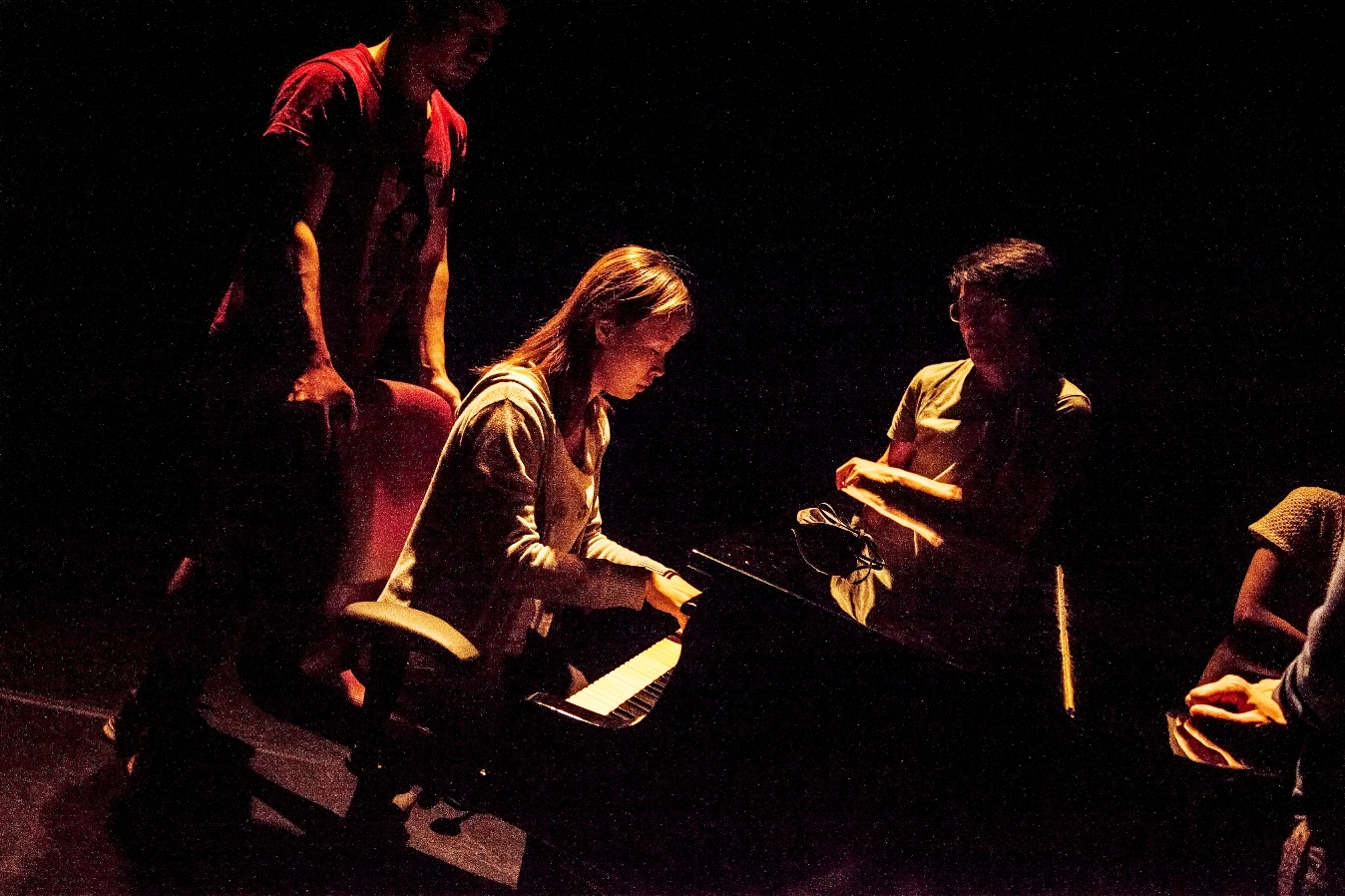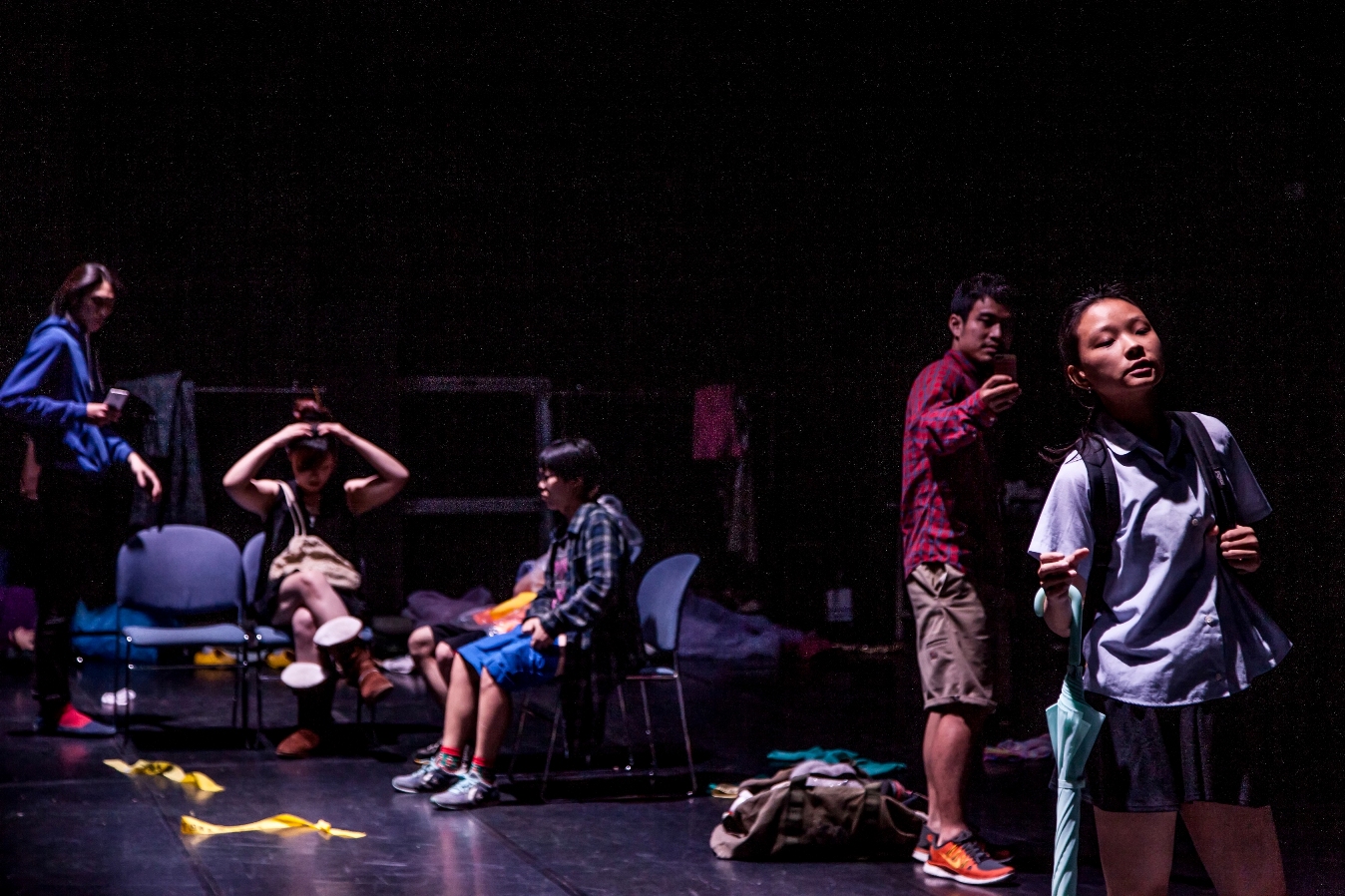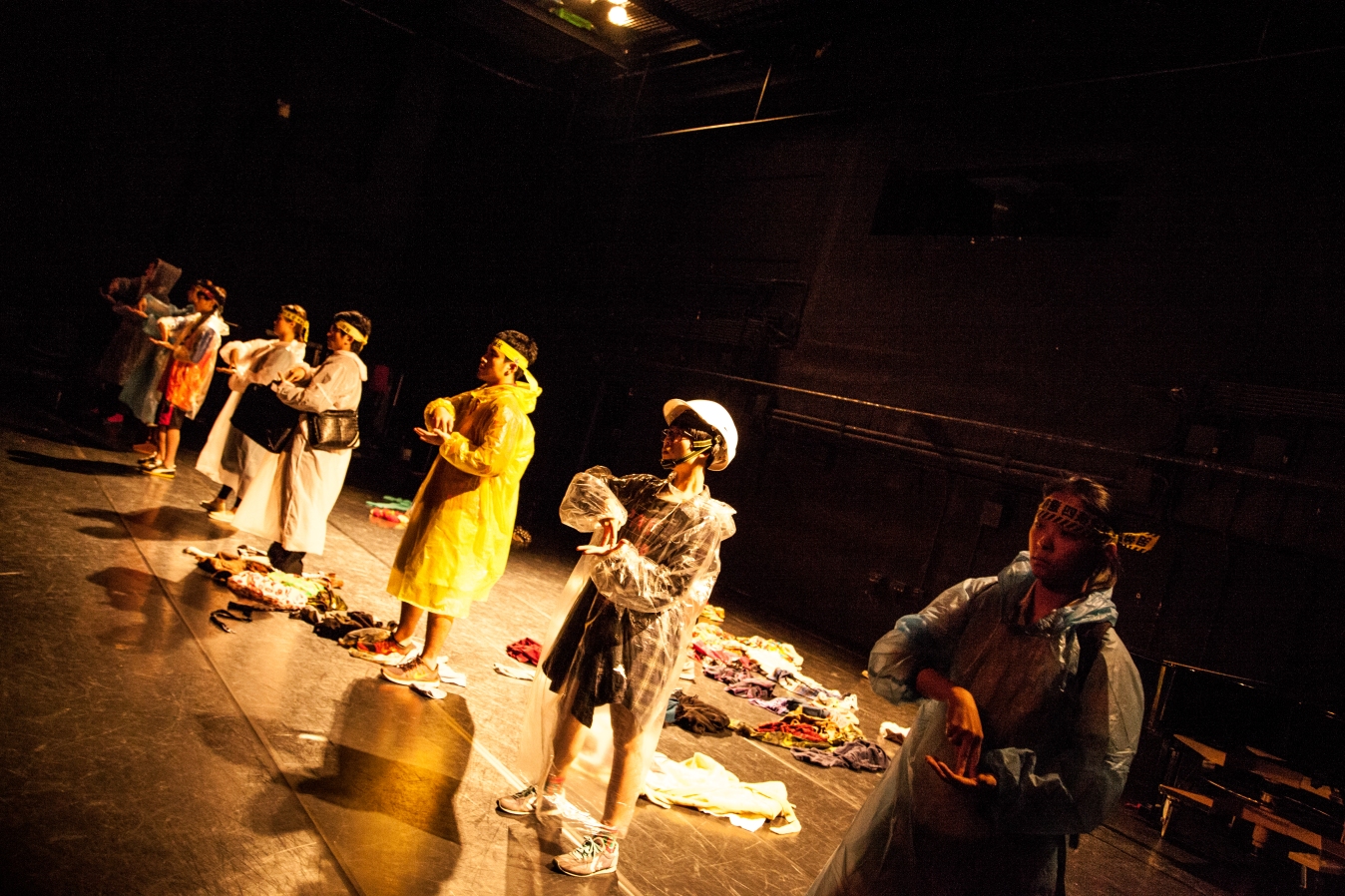羅大佑所創作的《戀曲1980》、《戀曲1990》、《戀曲2000》,皆以「戀曲」為名,文字及歌曲內容也都為訴說情衷及情歌的曲調,但在歌曲內容與時代景況及編年式的發表創作下,除了對於現實社會的關注及閱聽註解不言而喻外,更多了一層對於土地人事的情懷。
《戀曲2010》以羅大佑的戀曲系列歌曲為靈感,取材2000年至今的社會氛圍與大小事件議題,用集體創作的方式,突顯社會下看不見的真實。一段段不具情節運作的日常行為與意象、以空間為本質發展出來的劇場創作途徑,企圖傳達人的慣常恆性與更迭重複的純粹時間性。
風格涉 Style Lab
「風格涉」劇團以李銘宸為創作核心,依不同演出主題及製作狀況而組織人員及團隊編制。作品多發展自物件及場域,以集體即興創作之方式,並置或賦予其視聽文本,關注空間質地及材質與人的關係,以視覺畫面及氛圍意象敘事,積極嘗試各類創作途徑及方法,創作環境劇場的表現可能。
LI Ming-chen is the key figure of Style Lab Theater Company, which organizes its personnel and required teams according to different subjects of performance and the condition of production. Their works are usually developed from objects and sites, adopting a method of collective improvisation to juxtapose and embed the performing texts with a kind of relationship between the texture of the site and the people. Their performances often use visual images and atmosphere to narrate elements of a story, and they are active in trying out different creative means and methods, hoping to find new possibilities of expression in site-specific theater.
李銘宸
吳立翔、洪唯堯、余佩真、張仰瑄、張庭瑋、廖晨志、曾歆雁、簡珮璿
賴科竹
陳冠霖
國家戲劇院實驗劇場
關鍵字
- 聲音劇場
- KTV
- 318學運
- 社會運動
藝術家談作品
跳脫往常看戲的習慣。
曾歆雁:「每次與李銘宸合作,我要等到最後一週進劇場,甚至演出完畢,才能在腦中大概總結出這到底是什麼樣的一齣戲。因為他的戲不太圍繞在『議題』或『劇情』上,必須跳脫往常我們看戲的習慣,要用很整體、很視覺的方式去體會。」
評審談作品
「以聆聽帶動情節」,而不是「為劇情服務的歌曲」。
入圍理由 Reason for Nomination
「當我們在KTV唱歌的時候,我們不能説唱歌的不是我,歌聲中没有絲毫我的感情」。像這樣唱別人的歌、說別人的話,是日常經驗中「失語」、「無寫自己的歌可唱」的情境,這種概念可說是夠通俗也夠普遍。《戀曲2010》好似把這種尋常經驗放大成舞台上演員的時間感與身體感、同時也把聲音變成形式。在沒有敘述軸線與對白關係的支配下,整齣戲演員拋開特定角色的負累,使無名的人物以唱別人的歌、輪播各種公式話語、廣告、話術的聲音,讓觀眾重新回到一種「聽」戲的經驗:「以聆聽帶動情節」,而不是「為劇情服務的歌曲」。演員的身體在這裡是各種話術、歌曲的輪播載體,無論是說著與唱著都離不開作為聲音、樂音、與話語系統編碼化的身體。《戀曲2010》同時把劇場中的捆綁著演員的口白與敘述性,拋到一邊,把說話、唱歌這些與主體表達有關的表意技術,變成作品本身的主題。說到底,《戀曲2010》反思的是,沒有「戀曲」、沒有主體、只剩下歌曲與話術的情況下,如何述說?提名觀察人 ─ 郭昭蘭
“When we sing in the KTVs, we can’t deny that it is me who is singing although there is not a thread of my emotion in the voice.” Singing other people’s songs and repeating other people’s words is similar to the conditions such as “the loss of speech” or “unable to sing one’s own songs.” This is a very generic and common concept. Love Song 2010 amplified this usual experience and turned it into the performers’ sense of time and body on the stage while treating voices as a formality. Without the structuring of a storyline and dialogues, the actors in this play abandoned the burdens of playing fixed roles. It allowed nameless characters to sing other people’s songs and repeat in turns all kinds of formulaic phrases, advertisements, and speeches. Through this approach, the audience could re-experience “listening to a play”: a means to have the “plots propelled by listening” instead of “having the songs for the plot’s sake.” The actors’ bodies became the agents of all types of speeches and songs; no matter they were speaking or singing, the actors could not depart from this body encoded by voices, music and the speech system. Also renouncing lines and narration that have usually restrained actors in theater, Love Song 2010 transmuted the expressive techniques related to subjective expression such as speaking and singing into the theme of the work. As a matter of fact, what the play contemplated on was how to narrate when there were no “romance” and subject but only songs and speeches. Nominator: GUO Jau-Lan







